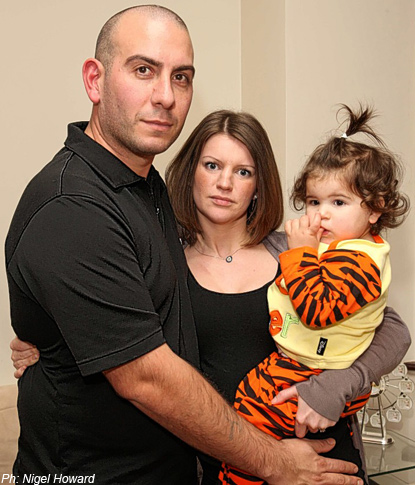If there’s one food, safety types will not eat, it’s raw sprouts. Alfalfa, mung bean, pea and clover, they tend to be the same microbiological shithole.
 Costco and Walmart stopped selling them five years ago in the U.S.
Costco and Walmart stopped selling them five years ago in the U.S.
It’s impossible to get a sandwich or salad in Australia without sprouts.
I’ve written chefs who should not be serving raw sprouts to immunocomprised people in hospitals.
They poo-pooed my concerns.
My South Australian colleague, Andrew Thomson, is the company director for Think ST Solutions, a food consultancy offering practical solutions to both management and staff in hospitals, aged-care facilities, restaurants, hotels and the food industry.
Thomson writes in his latest column for Hospital Health that it’s time for the health- and aged-care sectors to move beyond meeting minimum compliance requirements and strive for business excellence in food safety management systems.
Health- and aged-care organisations face challenges and high expectations from an array of stakeholders, regulatory and accreditation agencies, and consumers. The area of food safety is no exception. Despite this, many organisations are achieving minimum regulatory compliance and failing to recognise related risks until after a serious episode occurs.
It is essential that board directors of health- and aged-care organisations, or those about to take on these roles, understand their role and responsibilities. It is important to be aware of food laws and other regulatory requirements, and ensure that organisations abide by them.
As far back as 1997, Winsome McCaughey AO, the former chief executive of the Australia New Zealand Food Authority, outlined the broad policy framework for food regulatory reform in Australia. The reforms promoted a risk-based approach to food safety management, which is consistent with international guidelines on risk analysis. Central to this approach was the introduction of national food safety standards.
 The national food regulator, Food Standards Australia New Zealand, has developed standards that require food safety programs to be implemented in high-risk sectors, such as those providing food services to vulnerable persons. Food businesses providing potentially hazardous food to vulnerable persons — including hospital patients, aged-care residents and children in childcare centres — are captured by these requirements, in addition to businesses that prepare and deliver meals to vulnerable people in the home.
The national food regulator, Food Standards Australia New Zealand, has developed standards that require food safety programs to be implemented in high-risk sectors, such as those providing food services to vulnerable persons. Food businesses providing potentially hazardous food to vulnerable persons — including hospital patients, aged-care residents and children in childcare centres — are captured by these requirements, in addition to businesses that prepare and deliver meals to vulnerable people in the home.
Health- and aged-care organisations need to ensure that risks to food safety management within their business are properly identified, reported and controlled.
The key action points for boards of directors to embrace are:
Understand and accept their role and responsibility in food safety leadership.
Understand and accept, at an individual board member level, the accountability for the role.
Understand the organisation’s obligations under various (food) legislation.
Create clearly defined policies on accountabilities, risk and reporting.
Consider the food safety implications of board decisions.
Oversee management actions in food safety matters.
The board should also agree on how to incorporate food safety management into existing governance structures; how to set objectives and monitor performance of the business and food-related risks; and the appointment of a board member as its food safety ‘champion’ — a nominated food safety director who will take the lead on ensuring that the board’s food safety management responsibilities are properly discharged.
The governance of an organisation involves the establishment of a framework of values, processes and practices designed to regulate, monitor and provide effective reporting on organisational performance. Through this framework, boards and directors exercise their governing authority and make decisions to achieve the organisation’s purpose and goals. Directors ensure the organisation operates effectively and ethically, and complies with all laws and regulations.
Food safety governance is as important as any other aspect of governance. It is also a fundamental part of an organisation’s risk management strategy, which is a key responsibility of a board of directors. Both the board and its management team have a duty to exercise due diligence to ensure that the organisation complies with its food safety duties and obligations. Failure to effectively manage food safety risk has both human and business costs — this includes damaged reputations and potential prosecution.
It is important to distinguish between governance and management practices. Directors should focus on governance-related issues — determining the organisation’s purpose, developing an effective governance culture, holding management to account and ensuring effective performance and compliance. Directors work with management to develop strategy and business plans which are then implemented by management.
There is no ‘one size fits all’ solution for establishing effective governance for food safety management, as the structures and levels of engagement vary with the size and complexity of the organisations involved. There are a number of basic questions that a board of directors can ask itself to assist in creating the right business culture:
How does the board assure itself that the food safety management system has been fully implemented across the organisation?
How does the board assure itself that the organisation is demonstrating its commitment to food safety?
How does the board verify that the organisation’s food safety strategic and operational risks have been adequately identified and assessed, with appropriate mitigation strategies implemented?
What relevant information is the board receiving on food safety management? Is this reporting sufficient?
What processes are in place to inform board members of the results (and actions taken) from internal and external audits and comprehensive senior management reviews to ensure the food safety management system is fit for purpose?
How does the board satisfy itself that the organisation has food-handling employees and managers that are competent and adequately trained in their food safety responsibilities and accountabilities?
Does the organisation have sufficient resources (people, equipment, systems and budget) for managing its food safety management systems?
What approach does the board use to compare the performance of the food safety management system with comparable organisations? How does it monitor and rate its organisation’s performance?
In regards to competency and adequate food safety training, shrinking training budgets and providing employees with traditional training approaches to basic compliance training is one area for urgent change if an organisation is to flourish.
The decades-long and less desirable training practice used by many organisations relies on herding as many employees as possible to undertake (any form of) training and then show the regulator and/or accreditation assessors the training records. This approach fails on several fronts: it does not provide employees with the skills they urgently need for doing their job now and in the future; lacks the required processes when employees learn new skills and behaviours; and does not address developing the best employees for future roles. Questions relating to employee learning strategies, skills development, performance and systems improvement, and measuring training success are largely overlooked by senior leaders and the regulator.
RMIT Online and Deloitte Access Economics recently released Ready, set, upskill: Effective training for the jobs of tomorrow. This report provides fresh insights into post-COVID skill needs; how prepared Australians feel for a changing workplace; and where employers should invest in training to prepare for what’s ahead.
Modern approaches to learning in the workplace necessitate a model of continuous learning and supporting employee learning — it moves beyond designing and delivering one-off training programs.
A comprehensive table of sprout-related outbreaks can be found here.


.jpg) protect tourists from illness at the Los Gigantes Hotel in Tenerife.
protect tourists from illness at the Los Gigantes Hotel in Tenerife. swimming pool.
swimming pool..jpg) the time."
the time." hotel in September, the family’s first foreign trip.
hotel in September, the family’s first foreign trip. .jpg) She projectile vomited all over me.
She projectile vomited all over me.